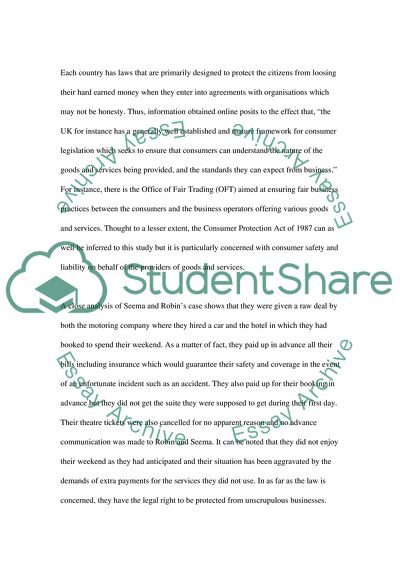Cite this document
(Consumer Law - Seema and Robin Case Study Example | Topics and Well Written Essays - 2500 words, n.d.)
Consumer Law - Seema and Robin Case Study Example | Topics and Well Written Essays - 2500 words. Retrieved from https://studentshare.org/law/1726658-consumer-law-2114
Consumer Law - Seema and Robin Case Study Example | Topics and Well Written Essays - 2500 words. Retrieved from https://studentshare.org/law/1726658-consumer-law-2114
(Consumer Law - Seema and Robin Case Study Example | Topics and Well Written Essays - 2500 Words)
Consumer Law - Seema and Robin Case Study Example | Topics and Well Written Essays - 2500 Words. https://studentshare.org/law/1726658-consumer-law-2114.
Consumer Law - Seema and Robin Case Study Example | Topics and Well Written Essays - 2500 Words. https://studentshare.org/law/1726658-consumer-law-2114.
“Consumer Law - Seema and Robin Case Study Example | Topics and Well Written Essays - 2500 Words”, n.d. https://studentshare.org/law/1726658-consumer-law-2114.


